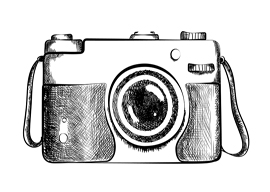
August 19, 2017

Source: Bigstock
My best books are the ones I haven’t written. They are not yet even in the larval stage, but I know them to be profound and original in content and perfect in form. I am very proud of them, and the mere thought of them gives a spring to my step. They are a justification for my having lived. It is really a pity (for the world, that is) that I shall not live long enough to write them. As Nero put it, what an artist dies in me.
Many of us go to our graves thinking that if only we had had enough time we should have triumphed in some way or another. A few of my patients claimed that, had it not been for some trifling injury to them that was somebody else’s fault, their career would have taken off, as in fact it was just about to do before the injury was done them. This was absurd, for—objectively considered—there was no indication that they would ever have amounted to very much. On the whole, overweight 38-year-olds do not become world-famous athletes, nor do people become concert pianists who take up the piano at the age of 50. But my patients would claim compensation as if their new careers were established fact rather than mere fantasy.
Did they really believe what they were claiming? The human mind, as I am sure many people will by now have observed, is a complex instrument, and works at several levels at the same time. Hence one can be sincere and fraudulent at the same time. It isn’t necessary to be a psychoanalyst to believe in the reality and prevalence of self-deception; indeed, it is necessary to be a kind of Candide not to believe in them, and to be utterly impervious to self-examination into the bargain.
The camera, it is said, does not lie, but when it comes to me it not only lies but is a pathological liar, incapable of telling the truth. Who is that creature it takes when pointed at me? Certainly not I: Every camera in the world, it seems, has been programmed to make me balder, whiter-haired, more wrinkled than I am. Who has done this, or why, I cannot say, but the evidence is plain for me, if not for anyone else, to see.
We need our illusions or else we could not face the world; or perhaps I should say we need illusions as a genre, if not necessarily the ones we have. There are some illusions, no doubt, that hinder us or harm us, but there are others that sustain us. Humankind, said Eliot (who used the word before it became politically correct), cannot bear very much reality—especially about itself.
The illusion that one would have been a success but for malevolent circumstance is a very necessary one for a lot of people, for there is no more pitiless or cruel a world than a pure and perfectly functioning meritocracy. Such an arrangement would confront everyone, or at least almost everyone, with his own mediocrity, for the mediocre are by definition in the majority. And who is not mediocre by comparison with Mozart? In a pure meritocracy, everyone would find his true, utterly deserved level; but it is a mere prejudice that if there were justice in the world, everyone would be better off. In a pure meritocracy, there would be no paranoid defense against one’s own nullity—one could blame only oneself for it and no one else. That is why the concept of equality of opportunity, besides implying a kind of Brave New World world, is so deeply vicious, and why so many people who promote it are obviously hate-filled. They do not want to serve humanity but torture it.